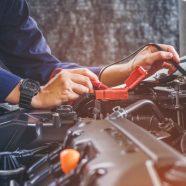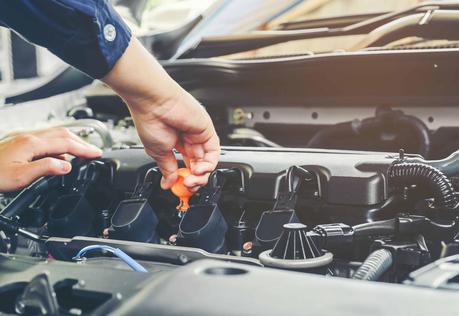

Image Source. Licensed under Creative Commons.
Repairs can be one of the biggest costs of owning a motor vehicle. If you're sick of having to take out a loan every time you visit the mechanics, why not consider these five tricks to bring down costs?
Take preventative action
Preventative measures are the best way to save costs. Whilst many parts will naturally wear over time through regular driving, you may be able to slow down the process by driving less aggressively, keeping fluids topped up and getting rid of unnecessary weight such as an empty roof box. There are tools that can help you to spot damage early such as a wheel nut indicator - these tools could help you to get small problems fixed quickly before they turn into larger problems. Don't wait until damage gets worse as it could mean more expensive repairs - for example a worn cam belt could eventually snap and cause serious damage to other engine parts in the process.
Shop around for repair centres
Every repair centre charges different rates. For this reason, it's worth shopping around in order to find the most affordable repair centre. You may be able to collect quotes over the phone if you've already had the problem diagnosed. Don't be afraid to try and negotiate costs - many repair centres will be willing to barter costs.
You can often save money by sourcing replacement parts yourself rather than getting a repair centre to order them for you. This is because many repair centres will try to make a profit on any parts they order in. There are plenty of sites online where you can search for car parts. Second-hand parts tend to be cheaper - but be wary that they may not be in the best condition (there's no point buying a part that will need to be replaced again in a few months!).
You may be able to do some repairs yourself to save money. Jobs such as replacing drive belts , brake pads and batteries may seem very complex, but they can actually be fairly easy DIY jobs. There are many free guides on the internet that can help you make these DIY fixes. You may need a few tools, but these are basic tools that you can find in any regular toolbox.
Know when to cut your losses
If your car seems to be cursed with problems and you're continuously having to invest in new repairs, ask yourself whether it's worth keeping onto your vehicle or buying a new vehicle entirely. It's generally a good rule to give up on a vehicle if repairs are going to cost more than half the value. You can usually get some money for scrapping your vehicle - whilst this won't be much, it could be something to put towards a new car (do your homework when getting a new car, so that you know you're getting something reliable).

